Ditapis dengan
E-book Ceremonial Storytelling : Ritual and Narrative in Post-9/11 US Wars
Time and again since the beginning of the wars in Afghanistan and Iraq, public discourse in the US has revolved around society’s relationship with its soldiers. Apart from medialized farewell and welcome-home ceremonies, yellow-ribbon campaigns and “I-support-the-troops” bumper stickers, protagonists within this discourse have increasingly expressed concern about how soldiers come …
- Edisi
- -
- ISBN/ISSN
- 9783631782941
- Deskripsi Fisik
- 333 hlm
- Judul Seri
- -
- No. Panggil
- 970.05 USB c
E-book A Complete Guide to Maggot Therapy : Clinical Practice, Therapeutic Pr…
There is a large and mostly unmet global need for affordable and efficacious wound care, despite modern-day medicine advancing at break-neck speed. Indeed, the tide of chronic wounds is rising. Modern lifestyle changes, particularly in low- and middle-income countries (LMICs), bring a rapid rise in non-communicable disease including cardiovascular disease, o…
- Edisi
- -
- ISBN/ISSN
- 9781800647305
- Deskripsi Fisik
- 470 hlm
- Judul Seri
- -
- No. Panggil
- 615.5 STA a
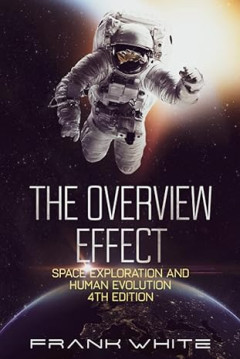
E-book The Overview Effect: Space Exploration and Human Evolution, 4rd Edition
More than three decades ago, Frank White coined the term “Overview Effect” to describe the cognitive shift that results from the experience of viewing the Earth from space and in space, from orbit or on a lunar mission. He found that with great consistency, this experience profoundly affects space travelers’ worldviews—their perceptions of themselves, our planet, and our understanding o…
- Edisi
- -
- ISBN/ISSN
- 9798735748458
- Deskripsi Fisik
- 618 halaman
- Judul Seri
- -
- No. Panggil
- 520 WHI t
E-book The Orientalist Semiotics of Dune : Religious and Historical Reference…
I disagree with such an evaluation and would rather claim that there is more meaning to the film, drawn to it from the original novel, than the audience can take in while watching the film only once, especially if those who watch it are unfamiliar with Herbert’s novel. In fact, every form of literature or visual media is in a way impacted by the time o…
- Edisi
- -
- ISBN/ISSN
- 9783963178511
- Deskripsi Fisik
- 119 hlm
- Judul Seri
- -
- No. Panggil
- 791.43 JAC t
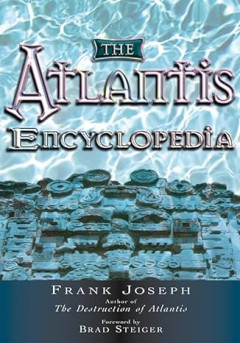
E-Book The Atlantis Encyclopedia
This is an invaluable, one-of-a-kind reference. Unlike most other books on the subject, The Atlantis Encyclopedia offers fewer theories and more facts. Although it does not set out to prove the sunken capital actually existed, The Atlantis Encyclopedia musters so much evidence on its behalf, even skeptics may conclude that there must be at least something factual behind such an enduring, indeed…
- Edisi
- -
- ISBN/ISSN
- 1564147959
- Deskripsi Fisik
- 312 halaman
- Judul Seri
- -
- No. Panggil
- 001.9 JOS t
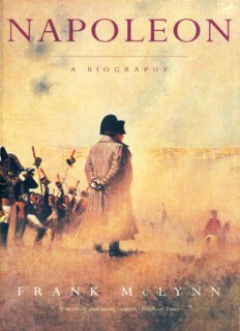
E-Book Napoleon: A Biography
Author McLynn explores the Promethean legend from his Corsican roots, through the chaotic years of the French Revolution and his extraordinary military triumphs, to the coronation in 1804, to his fatal decision in 1812 to add Russia to his seemingly endless conquests, and his ultimate defeat, imprisonment, and death in Saint Helena. McLynn aptly reveals the extent to which Napoleon was both exi…
- Edisi
- -
- ISBN/ISSN
- 0712662472
- Deskripsi Fisik
- 767 halaman
- Judul Seri
- -
- No. Panggil
- 920.71 MCL n
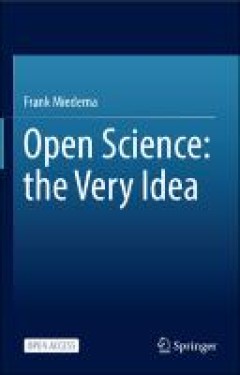
E-Book Open Science: The Very Idea
This open access book provides a broad context for the understanding of current problems of science and of the different movements aiming to improve the societal impact of science and research. The author offers insights with regard to ideas, old and new, about science, and their historical origins in philosophy and sociology of science, which is of interest to a broad readership. The book show…
- Edisi
- -
- ISBN/ISSN
- 9789402421156
- Deskripsi Fisik
- 247 halaman
- Judul Seri
- -
- No. Panggil
- 020.1 MIE o
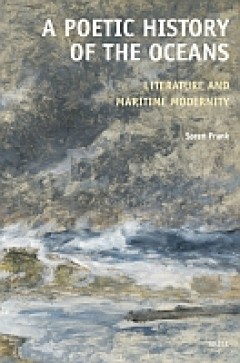
E-Book A Poetic History of the Oceans: Literature and Maritime Modernity
What is the ocean’s role in human and planetary history? How have writers, sailors, painters, scientists, historians, and philosophers from across time and space poetically envisioned the oceans and depicted human entanglements with the sea? In order to answer these questions, Søren Frank covers an impressive range of material in A Poetic History of the Oceans: Greek, Roman and Biblical text…
- Edisi
- -
- ISBN/ISSN
- 9789004426702
- Deskripsi Fisik
- 466 halaman
- Judul Seri
- -
- No. Panggil
- 930 FRA a
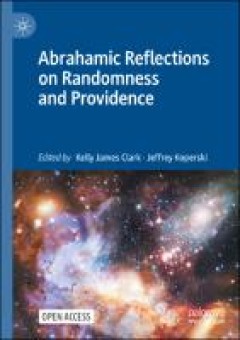
E-book Abrahamic Reflections on Randomness and Providence
This open access book addresses the question of how God can providentially govern apparently ungovernable randomness. Medieval theologians confidently held that God is provident, that is, God is the ultimate cause of or is responsible for everything that happens. However, scientific advances since the 19th century pose serious challenges to traditional views of providence. From Darwinian evolut…
- Edisi
- -
- ISBN/ISSN
- 9783030757977
- Deskripsi Fisik
- 384 halm.
- Judul Seri
- -
- No. Panggil
- 210.1
E-book Working-Class Literature(s) : Historical and International Perspectives
The idea for this collection was born out of a chance encounter over coffee in a U.S. Starbucks. Over a wide-ranging conversation, we discussed the state of working-class literature as a field, the de-cline of Marxism in academia, our favorite working-class authors, and the lack of good coffe shops on U.S. campuses. We both gen-erally laid out the various trajectories of scholarly rec…
- Edisi
- -
- ISBN/ISSN
- 9789176350485
- Deskripsi Fisik
- 249 hlm
- Judul Seri
- -
- No. Panggil
- 809 BAL w
E-book The Fundamentals of Meditation Practice
Originally, one's own mind and nature are pure, and there is nothing to accept and nothing to refuse; there is neither existence nor non-existence; there is only clear understanding without attachment and with no dwelling. One who wants know the no-attachment, no-dwelling mind can fnd it through meditation, because it is only then that the mind does not think of right and wrong, of good and evi…
- Edisi
- -
- ISBN/ISSN
- -
- Deskripsi Fisik
- 182 hlm
- Judul Seri
- -
- No. Panggil
- 204 CHE t
E-book Millions
The patron saint of this story is St Francis of Assisi (1181–1226 ), because it all sort of started with a robbery and the first saintish thing he ever did was a robbery. He stole some cloth from his father and gave it to the poor. There is a patron saint of actual robbers – Dismas (1st century) – but I’m not an actual robber. I was only trying to be good. It was our first day at Great …
- Edisi
- -
- ISBN/ISSN
- 9780060733322
- Deskripsi Fisik
- 119 hlm
- Judul Seri
- -
- No. Panggil
- 823 BOY m
E-book Entertainment-Education Behind the Scenes Case Studies for Theory and…
This book tracks the latest trends in the theory, research, and practice of entertainment-education, the field of communication that incorporates social change messaging into entertaining media. Sometimes called edutainment, social impact television, narrative persuasion, or cultural strategy, this approach to social and behavior change communication offers new opportunities including transmedi…
- Edisi
- -
- ISBN/ISSN
- 9783030636142
- Deskripsi Fisik
- 365 hlm
- Judul Seri
- -
- No. Panggil
- 302.23 FRA e
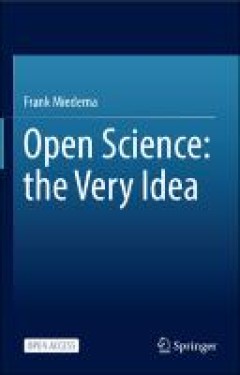
E-Book Open Science: the Very Idea
This open access book provides a broad context for the understanding of current problems of science and of the different movements aiming to improve the societal impact of science and research. The author offers insights with regard to ideas, old and new, about science, and their historical origins in philosophy and sociology of science, which is of interest to a broad readership. The book show…
- Edisi
- -
- ISBN/ISSN
- 9789402421156
- Deskripsi Fisik
- 247 pages
- Judul Seri
- -
- No. Panggil
- 300.1 MIE o
E-book Sports Training Principles
Coaching is mainly an art and, like the artist, the coach must have two attributes. The first is creative flair, that marriage of aptitude and passion which enables him to draw an athlete’s dream towards realisation. The athlete, moved to express himself within a social mosaic, chooses to do so in pursuit of competitive excellence in sport. The coach creates order and direction for that expre…
- Edisi
- 6th ed
- ISBN/ISSN
- -
- Deskripsi Fisik
- 585 hlm
- Judul Seri
- -
- No. Panggil
- 796.01 DIC s
E-book Open Science : The very idea
Science promised to society to contribute to the grand challenges of the United Nations, WHO, the EU agenda and national agendas for change and improvement of our life. It will be discussed how this social contract between science and society has developed since 1945. The first phase from 1945 till 1960 was characterized by autonomy, building on the successes of the natural …
- Edisi
- -
- ISBN/ISSN
- 9789402421156
- Deskripsi Fisik
- 265 hlm
- Judul Seri
- -
- No. Panggil
- 501 MIE o
E-book Ozma of Oz
The wind blew hard and joggled the water of the ocean, sending ripples across its surface. Then the wind pushed the edges of the ripples until they became waves, and shoved the waves around until they became billows. The billows rolled dreadfully high: higher even than the tops of houses. Some of them, indeed, rolled as high as the tops of tall trees, and seemed like mountains; and the gul…
- Edisi
- -
- ISBN/ISSN
- -
- Deskripsi Fisik
- 200 hlm; 0.3 mb
- Judul Seri
- -
- No. Panggil
- 823 BAU o
E-book The patchwork girl of Oz
The children who had learned to look for the books about Oz and who loved the stories about the gay and happy people inhabiting that favored country, were as sorry as their Historian that there would be no more books of Oz stories. They wrote many letters asking if the Historian did not know of some adventures to write about that had happened before the Land of Oz was shut out from all …
- Edisi
- -
- ISBN/ISSN
- -
- Deskripsi Fisik
- 370 hlm; 0.5 mb
- Judul Seri
- -
- No. Panggil
- 823 BAU t
E-book The road to Oz
The shaggy man waited. He had an oat-straw in his mouth, which he chewed slowly as if it tasted good; but it didn't. There was an apple-tree beside the house, and some apples had fallen to the ground. The shaggy man thought they would taste better than the oat-straw, so he walked over to get some. A little black dog with bright brown eyes dashed out of the farm-house and ran madly toward t…
- Edisi
- -
- ISBN/ISSN
- -
- Deskripsi Fisik
- 205 hlm; 0.3 mb
- Judul Seri
- -
- No. Panggil
- 823 BAU t
E-book Rinkitink in Oz
If you have a map of the Land of Oz handy, you will find that the great Nonestic Ocean washes the shores of the Kingdom of Rinkitink, between which and the Land of Oz lies a strip of the country of the Nome King and a Sandy Desert. The Kingdom of Rinkitink isn't very big and lies close to the ocean, all the houses and the King's palace being built near the shore. The people live much upo…
- Edisi
- -
- ISBN/ISSN
- -
- Deskripsi Fisik
- 266 hlm; 0.4 mb
- Judul Seri
- -
- No. Panggil
- 823 BAU r
E-book The magic egg and other stories
The pretty little theatre attached to the building of the Unicorn Club had been hired for a certain January afternoon by Mr. Herbert Loring, who wished to give therein a somewhat novel performance, to which he had invited a small audience consisting entirely of friends and acquaintances. Loring was a handsome fellow about thirty years old, who had travelled far and studied much. He had re…
- Edisi
- -
- ISBN/ISSN
- -
- Deskripsi Fisik
- 293 hlm; 0.5 mb
- Judul Seri
- -
- No. Panggil
- 823 STO t
E-book The emerald city of Oz
The Nome King was in an angry mood, and at such times he was very disagreeable. Every one kept away from him, even his Chief Steward Kaliko. Therefore the King stormed and raved all by himself, walking up and down in his jewel-studded cavern and getting angrier all the time. Then he remembered that it was no fun being angry unless he had some one to frighten and make miserable, and he rus…
- Edisi
- -
- ISBN/ISSN
- -
- Deskripsi Fisik
- 279 hlm; 0.4 mb
- Judul Seri
- -
- No. Panggil
- 823 BAU t
E-book American fairy tales
No one intended to leave Martha alone that afternoon, but it happened that everyone was called away, for one reason or another. Mrs. McFarland was attending the weekly card party held by the Women's Anti-Gambling League. Sister Nell's young man had called quite unexpectedly to take her for a long drive. Papa was at the office, as usual. It was Mary Ann's day out. As for Emeline, she certa…
- Edisi
- -
- ISBN/ISSN
- -
- Deskripsi Fisik
- 171 hlm; 0.2 mb
- Judul Seri
- -
- No. Panggil
- 823 BAU a
E-book The life and adventures of santa claus
Have you heard of the great Forest of Burzee? Nurse used to sing of it when I was a child. She sang of the big tree-trunks, standing close together, with their roots intertwining below the earth and their branches intertwining above it; of their rough coating of bark and queer, gnarled limbs; of the bushy foliage that roofed the entire forest, save where the sunbeams found a path through w…
- Edisi
- -
- ISBN/ISSN
- -
- Deskripsi Fisik
- 141 hlm; 0.2 mb
- Judul Seri
- -
- No. Panggil
- 823 BAU t
E-book Dorothy and the wizard in Oz
The train from 'Frisco was very late. It should have arrived at Hugson's Siding at midnight, but it was already five o'clock and the gray dawn was breaking in the east when the little train slowly rumbled up to the open shed that served for the station-house. As it came to a stop the conductor called out in a loud voice: "Hugson's Siding!" At once a little girl rose from her seat and walk…
- Edisi
- -
- ISBN/ISSN
- -
- Deskripsi Fisik
- 212 hlm; 0.3 mb
- Judul Seri
- -
- No. Panggil
- 823 BAU d
E-book The tin woodman of Oz
The Tin Woodman sat on his glittering tin throne in the handsome tin hall of his splendid tin castle in the Winkie Country of the Land of Oz. Beside him, in a chair of woven straw, sat his best friend, the Scarecrow of Oz. At times they spoke to one another of curious things they had seen and strange adventures they had known since first they two had met and become comrades. But at times…
- Edisi
- -
- ISBN/ISSN
- -
- Deskripsi Fisik
- 250 hlm; 0.3 mb
- Judul Seri
- -
- No. Panggil
- 823 BAU t
E-book Tik tok of Oz
Ann's Army "I won't!" cried Ann; "I won't sweep the floor. It is beneath my dignity." "Some one must sweep it," replied Ann's younger sister, Salye; "else we shall soon be wading in dust. And you are the eldest, and the head of the family." "I'm Queen of Oogaboo," said Ann, proudly. "But," she added with a sigh, "my kingdom is the smallest and the poorest in all the Land of Oz". This …
- Edisi
- -
- ISBN/ISSN
- -
- Deskripsi Fisik
- 312 hlm; 0.4 mb
- Judul Seri
- -
- No. Panggil
- 823 BAU t
E-book The Scarecrow of Oz
"Seems to me," said Cap'n Bill, as he sat beside Trot under the big acacia tree, looking out over the blue ocean, "seems to me, Trot, as how the more we know, the more we find we don't know." "I can't quite make that out, Cap'n Bill," answered the little girl in a serious voice, after a moment's thought, during which her eyes followed those of the old sailor-man across the glassy surface…
- Edisi
- -
- ISBN/ISSN
- -
- Deskripsi Fisik
- 257 hlm; 0.4 mb
- Judul Seri
- -
- No. Panggil
- 823 BAU t
E-book The wonderful wizard of Oz
Dorothy lived in the midst of the great Kansas prairies, with Uncle Henry, who was a farmer, and Aunt Em, who was the farmer's wife. Their house was small, for the lumber to build it had to be carried by wagon many miles. There were four walls, a floor and a roof, which made one room; and this room contained a rusty looking cookstove, a cupboard for the dishes, a table, three or four chai…
- Edisi
- -
- ISBN/ISSN
- -
- Deskripsi Fisik
- 193 hlm; 0.3 mb
- Judul Seri
- -
- No. Panggil
- 823 BAU t
E-book The magic of Oz
On the east edge of the Land of Oz, in the Munchkin Country, is a big, tall hill called Mount Munch. One one side, the bottom of this hill just touches the Deadly Sandy Desert that separates the Fairyland of Oz from all the rest of the world, but on the other side, the hill touches the beautiful, fertile Country of the Munchkins. The Munchkin folks, however, merely stand off and look at Mo…
- Edisi
- -
- ISBN/ISSN
- -
- Deskripsi Fisik
- 194 hlm; 0.3 mb
- Judul Seri
- -
- No. Panggil
- 823 BAU t

Cosmic ordering
- Edisi
- -
- ISBN/ISSN
- 979-1238-62-5
- Deskripsi Fisik
- 174 hlm;12,5 cm x 19 cm
- Judul Seri
- -
- No. Panggil
- 118 FRA c
- Edisi
- -
- ISBN/ISSN
- 979-1238-62-5
- Deskripsi Fisik
- 174 hlm;12,5 cm x 19 cm
- Judul Seri
- -
- No. Panggil
- 118 FRA c

Alibaba : Kerajaan yang dibangun oleh Jack Ma
Siapa saja yang berpikir bahwa bangsa Tionghoa hanya meniru atau mencuri teknologi dari Barat harus membaca buku ini dan mempertimbangkannya kembali. Jack Ma merupakan gabungan antara Bill Gates, Steve Jobs, Larry Page, Sergey Brin, dan Mark Zuckerberg dalam satu tubuh. SIR MARTIN SORRELL CEO WPP Duncan Clark berhasil masuk ke dalam jiwa Alibaba dan pendirinya, Jack Ma, yang berhasil menghad…
- Edisi
- cet. 7
- ISBN/ISSN
- 9786020413730
- Deskripsi Fisik
- xvii + 340 hlm.; illus. 15 x 23 cm
- Judul Seri
- -
- No. Panggil
- 658.84 CLA a

LAUT DAN LAUTAN: Seri: Panduan Geografi
Laut dan lautan menyelimuti lebih dari tiga perempat luas permukaan bumi. Air lautan itu berada di dalam gerakan yang tetap yang disebabkan oleh arus dan pasang yan kuat. Laut dan lautan juga merupakan tempat tinggal bagi ribuan makhluk hidup yang bereda, mulai dari udang dan ubur-ubur hingga ikan hiu dan ikan paus. Dasar lautan berkontur karena terdapat gunung-gunung yang tinggi, bukit, dan pa…
- Edisi
- -
- ISBN/ISSN
- -
- Deskripsi Fisik
- 32 hlm; illus;21,5 x 29 cm
- Judul Seri
- -
- No. Panggil
- 551.4 CLA l

LAUT DAN LAUTAN: Seri: Panduan Geografi
Laut dan lautan menyelimuti lebih dari tiga perempat luas permukaan bumi. Air lautan itu berada di dalam gerakan yang tetap yang disebabkan oleh arus dan pasang yan kuat. Laut dan lautan juga merupakan tempat tinggal bagi ribuan makhluk hidup yang bereda, mulai dari udang dan ubur-ubur hingga ikan hiu dan ikan paus. Dasar lautan berkontur karena terdapat gunung-gunung yang tinggi, bukit, dan pa…
- Edisi
- -
- ISBN/ISSN
- -
- Deskripsi Fisik
- 32 hlm; illus;21,5 x 29 cm
- Judul Seri
- -
- No. Panggil
- 551.4 CLA l

LAUT DAN LAUTAN: Seri: Panduan Geografi
Laut dan lautan menyelimuti lebih dari tiga perempat luas permukaan bumi. Air lautan itu berada di dalam gerakan yang tetap yang disebabkan oleh arus dan pasang yan kuat. Laut dan lautan juga merupakan tempat tinggal bagi ribuan makhluk hidup yang bereda, mulai dari udang dan ubur-ubur hingga ikan hiu dan ikan paus. Dasar lautan berkontur karena terdapat gunung-gunung yang tinggi, bukit, dan pa…
- Edisi
- -
- ISBN/ISSN
- -
- Deskripsi Fisik
- 32 hlm; illus;21,5 x 29 cm
- Judul Seri
- -
- No. Panggil
- 551.4 CLA l

GEMPA BUMI HINGGA GUNUNG BERAPI: Seri: Panduan Geografi
Gempa bumi dan letusan gunung berapi adalah dua kekuatan yang berperan di dalam pembentukan bumi ini. Selama periode beberapa rarus tahun, permukaan bumi tampaknya tidak berubah. Akan tetapi, selama jutaan tahun keberadaannya, bumi telah mengalami banyak perubahan. Gempa bumi dan gunung berapi mengubah bentuk permukaan planet kita ini. Namun, perubahan itu begitu lambatnya. Buku ini memberikan…
- Edisi
- cet. 2
- ISBN/ISSN
- -
- Deskripsi Fisik
- 32 hlm; illus;21,5 x 29 cm
- Judul Seri
- -
- No. Panggil
- 551.2 CLA g

GEMPA BUMI HINGGA GUNUNG BERAPI: Seri: Panduan Geografi
Gempa bumi dan letusan gunung berapi adalah dua kekuatan yang berperan di dalam pembentukan bumi ini. Selama periode beberapa rarus tahun, permukaan bumi tampaknya tidak berubah. Akan tetapi, selama jutaan tahun keberadaannya, bumi telah mengalami banyak perubahan. Gempa bumi dan gunung berapi mengubah bentuk permukaan planet kita ini. Namun, perubahan itu begitu lambatnya. Buku ini memberikan…
- Edisi
- cet. 2
- ISBN/ISSN
- -
- Deskripsi Fisik
- 32 hlm; illus;21,5 x 29 cm
- Judul Seri
- -
- No. Panggil
- 551.2 CLA g

GEMPA BUMI HINGGA GUNUNG BERAPI: Seri: Panduan Geografi
Gempa bumi dan letusan gunung berapi adalah dua kekuatan yang berperan di dalam pembentukan bumi ini. Selama periode beberapa rarus tahun, permukaan bumi tampaknya tidak berubah. Akan tetapi, selama jutaan tahun keberadaannya, bumi telah mengalami banyak perubahan. Gempa bumi dan gunung berapi mengubah bentuk permukaan planet kita ini. Namun, perubahan itu begitu lambatnya. Buku ini memberikan…
- Edisi
- cet. 2
- ISBN/ISSN
- -
- Deskripsi Fisik
- 32 hlm; illus;21,5 x 29 cm
- Judul Seri
- -
- No. Panggil
- 551.2 CLA g

ATMOSFER
Atmosfer adalah selimut udara yang mengelilingi bumi, udara tersebut tetap berada di udara karena gaya gravitasi. Udara itu terdiri atas camputanh gas-gas; tiga di antaranya (nitrogen, oksigen, dan karbon dioksida) memainkan peranan penting dalam memelihara kehidupan di atas bumi. Pergerakan udara di bagian atmosfer yang lebih rendah menimbulkan angin, yang pada gilirannya akan bertanggung jawa…
- Edisi
- -
- ISBN/ISSN
- -
- Deskripsi Fisik
- 32 hlm; illus;21,5 x 29,5 cm
- Judul Seri
- -
- No. Panggil
- 551.5 CLA a

ATMOSFER
Atmosfer adalah selimut udara yang mengelilingi bumi, udara tersebut tetap berada di udara karena gaya gravitasi. Udara itu terdiri atas camputanh gas-gas; tiga di antaranya (nitrogen, oksigen, dan karbon dioksida) memainkan peranan penting dalam memelihara kehidupan di atas bumi. Pergerakan udara di bagian atmosfer yang lebih rendah menimbulkan angin, yang pada gilirannya akan bertanggung jawa…
- Edisi
- -
- ISBN/ISSN
- -
- Deskripsi Fisik
- 32 hlm; illus;21,5 x 29,5 cm
- Judul Seri
- -
- No. Panggil
- 551.5 CLA a

MATEMTIKA UNTUK PEMROSESAN DATA
- Edisi
- -
- ISBN/ISSN
- -
- Deskripsi Fisik
- viii ;327 hlm,illus;15,5 x 23 cm
- Judul Seri
- -
- No. Panggil
- 519.4 CLA m
- Edisi
- -
- ISBN/ISSN
- -
- Deskripsi Fisik
- viii ;327 hlm,illus;15,5 x 23 cm
- Judul Seri
- -
- No. Panggil
- 519.4 CLA m

MATRIKS( VERSI / METRIK )
- Edisi
- cet. 2
- ISBN/ISSN
- -
- Deskripsi Fisik
- ix ; 220 hlm;15,5 x 24 cm
- Judul Seri
- -
- No. Panggil
- 512.9 AYR m
- Edisi
- cet. 2
- ISBN/ISSN
- -
- Deskripsi Fisik
- ix ; 220 hlm;15,5 x 24 cm
- Judul Seri
- -
- No. Panggil
- 512.9 AYR m

SERIBU LIMA RATUS (1500) CERITA BERMAKNA: Untuk Renungan, khotbah, dan cerama…
- Edisi
- cet. 5
- ISBN/ISSN
- 978-979-565-135
- Deskripsi Fisik
- xix, 232 hlm;15,5 cm x 22,5 cm
- Judul Seri
- -
- No. Panggil
- 242 MIH s
- Edisi
- cet. 5
- ISBN/ISSN
- 978-979-565-135
- Deskripsi Fisik
- xix, 232 hlm;15,5 cm x 22,5 cm
- Judul Seri
- -
- No. Panggil
- 242 MIH s

KAU MILIKKU
- Edisi
- cet. 2
- ISBN/ISSN
- 979-655-409-7
- Deskripsi Fisik
- 400 hlm;11 x 18 cm
- Judul Seri
- -
- No. Panggil
- 823 CLA k
- Edisi
- cet. 2
- ISBN/ISSN
- 979-655-409-7
- Deskripsi Fisik
- 400 hlm;11 x 18 cm
- Judul Seri
- -
- No. Panggil
- 823 CLA k

KEKASIHKU SUNDAY
- Edisi
- cet. 1
- ISBN/ISSN
- 979-686-906-3
- Deskripsi Fisik
- 256 hlm;11 x 18 cm
- Judul Seri
- -
- No. Panggil
- 823 CLA k
- Edisi
- cet. 1
- ISBN/ISSN
- 979-686-906-3
- Deskripsi Fisik
- 256 hlm;11 x 18 cm
- Judul Seri
- -
- No. Panggil
- 823 CLA k

KOTA KENANGAN
- Edisi
- cet. 3
- ISBN/ISSN
- 979-605-667-4
- Deskripsi Fisik
- 448 hlm;11 x 18 cm
- Judul Seri
- -
- No. Panggil
- 823 CLA k
- Edisi
- cet. 3
- ISBN/ISSN
- 979-605-667-4
- Deskripsi Fisik
- 448 hlm;11 x 18 cm
- Judul Seri
- -
- No. Panggil
- 823 CLA k

MASIH ADA KESEMPATAN
- Edisi
- cet. 1
- ISBN/ISSN
- 978-979-22-2836
- Deskripsi Fisik
- 464 hlm;11 x 18 cm
- Judul Seri
- -
- No. Panggil
- 823 CLA m
- Edisi
- cet. 1
- ISBN/ISSN
- 978-979-22-2836
- Deskripsi Fisik
- 464 hlm;11 x 18 cm
- Judul Seri
- -
- No. Panggil
- 823 CLA m

MASIH ADA KESEMPATAN
- Edisi
- cet. 1
- ISBN/ISSN
- 978-979-22-2836
- Deskripsi Fisik
- 464 hlm;11 x 18 cm
- Judul Seri
- -
- No. Panggil
- 823 CLA m
- Edisi
- cet. 1
- ISBN/ISSN
- 978-979-22-2836
- Deskripsi Fisik
- 464 hlm;11 x 18 cm
- Judul Seri
- -
- No. Panggil
- 823 CLA m

MALAM SAATNYA AKU BERAKSI
- Edisi
- cet. 1
- ISBN/ISSN
- 978-979-22-3219
- Deskripsi Fisik
- 488 hlm;11 X 18 cm
- Judul Seri
- -
- No. Panggil
- 823 CLA m
- Edisi
- cet. 1
- ISBN/ISSN
- 978-979-22-3219
- Deskripsi Fisik
- 488 hlm;11 X 18 cm
- Judul Seri
- -
- No. Panggil
- 823 CLA m

SEBELUM AKU PERGI
- Edisi
- cet. 2
- ISBN/ISSN
- 979-676-491-6
- Deskripsi Fisik
- 464 hlm;11 x 18 cm
- Judul Seri
- -
- No. Panggil
- 823 CLA s
- Edisi
- cet. 2
- ISBN/ISSN
- 979-676-491-6
- Deskripsi Fisik
- 464 hlm;11 x 18 cm
- Judul Seri
- -
- No. Panggil
- 823 CLA s
 Karya Umum
Karya Umum  Filsafat
Filsafat  Agama
Agama  Ilmu-ilmu Sosial
Ilmu-ilmu Sosial  Bahasa
Bahasa  Ilmu-ilmu Murni
Ilmu-ilmu Murni  Ilmu-ilmu Terapan
Ilmu-ilmu Terapan  Kesenian, Hiburan, dan Olahraga
Kesenian, Hiburan, dan Olahraga  Kesusastraan
Kesusastraan  Geografi dan Sejarah
Geografi dan Sejarah